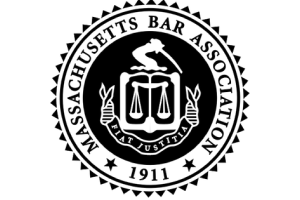Operating to endanger
Driving to Endanger in Massachusetts: Elements, Penalties, and Defense Strategies
Driving to endanger, also referred to as operating to endanger (or negligent operation or even reckless operation) is a misdemeanor offense in Massachusetts, governed by General Laws Chapter 90, § 24(2)(a). This charge can have serious implications for your freedom, driving privileges, and financial stability. Below, we break down the legal elements of this offense and discuss the strategies we use to defend clients accused of driving to endanger.

Elements of the Offense
To convict someone of driving to endanger, the Commonwealth must prove the following elements beyond a reasonable doubt:
- Operation of a Motor Vehicle
- The defendant was operating (driving or in control of) a motor vehicle.
- Public Way or Access
- The operation occurred on a public road, highway, or any area open to the public, such as parking lots.
- Endangerment
- The defendant drove in a manner that was negligent or reckless, creating a substantial risk of injury to others or damage to property.
The key issue is whether the defendant’s driving behavior deviated significantly from what a reasonable and prudent person would do under similar circumstances. Evidence often includes speeding, unintentional or caseless lane changes / crossing lines, ignoring traffic signals, or involvement in an accident.
Penalties for Driving to Endanger
If convicted, the penalties under Chapter 90, § 24(2)(a) include:
- Incarceration: Up to 2 years in jail.
- Fines: A fine of up to $200.
- License Suspension: A loss of driving privileges ranging from 60 days to 1 year.
- Insurance Consequences: Convictions can lead to significant increases in auto insurance premiums.
Additionally, a conviction for driving to endanger will remain on your criminal record and driving history, which could affect future employment opportunities and professional licenses.
Common Scenarios Leading to Charges
Driving to endanger charges often arise from:
- Involvement in an accident, especially when fault is unclear or disputed.
- Speeding excessively or driving aggressively (e.g., tailgating, cutting off other vehicles).
- Erratic driving caused by distractions like texting or impairment from alcohol.
- Reports from other drivers or witnesses alleging reckless behavior.
These charges are frequently coupled with civil infractions or additional criminal charges, such as OUI (Operating Under the Influence) or leaving the scene of an accident.
Defense Strategies
At Erkan & Sullivan, P.C., we utilize a tailored defense strategy for every client based on the facts of their case. Below are some common approaches:
1. Challenging the Evidence
- Video Footage or Dashcams: Examining whether any video evidence supports or contradicts the allegations. Nowadays, there is a plethora of cameras around, whether on police cruisers, traffic signs, or buildings. Access to this footage can sometimes lead to key evidence to contextualize the event or explain how witnesses got it wrong.
- Witness Statements: Cross-examining witnesses for inconsistencies or bias.
- Police Reports: Analyzing the officer’s alleged observations to identify errors or exaggerations. When you think of police reports, you might think they contain “just the facts, ma’am.” Our experience teaches us otherwise and, through vigorous cross-examination, we will punish police for misstatements or assumptions contained in their reports.
2. Proving Lack of Negligence or Recklessness
- Establishing that the defendant’s driving was reasonable given the circumstances. For example, unforeseen road conditions or even hazards like fallen trees or animals may account for what is otherwise perceived as bad driving behavior.
- Demonstrating that road conditions, mechanical issues, or a host of other explanations exist for the alleged behavior.
3. Procedural Violations
- Clerk’s Hearing Requirements: Arguing for dismissal if the defendant was entitled to a clerk’s hearing but did not receive one.
- No-Fix Law Protections: Ensuring compliance with laws designed to protect defendants from improper or arbitrary charges.
4. Negotiation with Prosecutors
- Pursuing reduced charges or pretrial diversion programs to avoid a criminal conviction. It’s pretty common that these offenses can be negotiated away with “pretrial probation,” or a “general continuance” — these are just fancy terms for deferred dismissals.
- Advocating for penalties that minimize the impact on the client’s life, such as shorter license suspensions or alternative sentencing options. For instance, if the evidence is strong, we can advocate for a “continuance without a finding” or “CWOF,” which allows the accused to admit responsibility but still get a dismissal of their case if they comply with court ordered supervision and conditions.
5. Technical Defenses
- Highlighting deficiencies in the Commonwealth’s case, such as a failure to prove endangerment or an unlawful traffic stop.
- Suppressing evidence obtained through illegal searches or improper police conduct. This type of misconduct happens more than you might think.
Clerk’s Hearings: An Opportunity to Avoid Charges
In most cases, individuals accused of driving to endanger are entitled to a clerk’s hearing before formal charges are filed. This hearing is a critical opportunity to resolve the matter without a criminal record. We represent clients in these hearings by:
- Presenting evidence to challenge the allegations.
- Persuading the clerk magistrate to dismiss the case or issue a civil citation instead of criminal charges.
Click here to learn more about clerk’s hearings in Massachusetts.
Why Choose Erkan & Sullivan, P.C. to Defend Your Case?
With decades of combined experience, Attorneys Murat Erkan and Ryan Sullivan have successfully defended countless clients against driving to endanger charges. As former prosecutors, we have an in-depth understanding of how the Commonwealth builds its cases—and how to dismantle them.
We pride ourselves on our:
- Thorough Investigation: No detail is overlooked in uncovering weaknesses in the case against you.
- Strategic Defense Planning: Every defense is tailored to your unique circumstances.
- Proven Negotiation Skills: Our attorneys are skilled negotiators who can often resolve cases favorably without the need for trial.
Contact Erkan & Sullivan, P.C. Today
If you or a loved one has been charged with driving to endanger, contact Erkan & Sullivan, P.C. at (978) 474-0054 or send us an email for a confidential consultation. We will help you navigate the legal process and fight to protect your freedom, your license, and your future.
Driving to endanger is a misdemeanor in Massachusetts punishable pursuant to general law chapter 90, § 24(2)(a) as follows:
- 2 years in jail
- $200 fine
- License loss from 60 days to 1 year.

Police may choose to file this charge against you in various contexts. If you are involved in an accident, are seen driving erratically, or even driving too fast, police may choose to charge you with this crime in addition to any number of civil driving infractions. This charge can have a major impact on your life in the form of potential incarceration, loss of driving privileges, and an increase in insurance premiums. We can help you minimize these consequences and, in most cases, avoid them altogether.
This charge is a misdemeanor, and is subject to the Massachusetts no-fix law, discussed here. You are also entitled to a clerk’s hearing in most instances. Click here to see our in-depth discussion about clerk’s hearings in Massachusetts. If police fail to follow these protective laws, we may be able to get your case dismissed.





